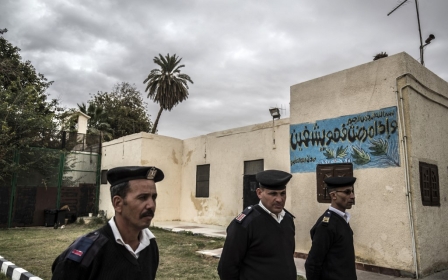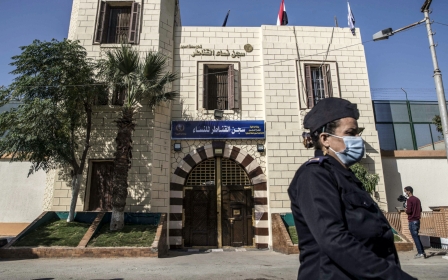Egyptian researcher Ahmed Samir Santawy banned from travel, despite pardon

Egyptian authorities have banned researcher Ahmed Samir Santawy from leaving the country - despite his recent release from prison after a presidential pardon.
Santawy, a 29-year-old postgraduate student, was released last month after being detained in Egypt since 1 February 2021 on charges of "spreading false news".
A report by the local news website Mada Masr cited Santawy's brother as saying that Cairo Airport officials informed Santawy on Saturday that he was banned from travel, despite earlier promises to his family and lawyer that he would be able to travel to resume his studies.
A student of anthropology at the Central European University in Vienna (CEU), Santawy's research focuses on women's rights, including the history of reproductive rights in Egypt.
He also wrote social media posts critical of human rights violations in Egypt and the state's mishandling of the Covid-19 pandemic.
New MEE newsletter: Jerusalem Dispatch
Sign up to get the latest insights and analysis on Israel-Palestine, alongside Turkey Unpacked and other MEE newsletters
Amnesty International described Santawy as "a prisoner of conscience", and said he was detained in connection with his academic research on gender and Islam.
The international organisation added that he had been "beaten and questioned" for five days by the Egyptian authorities and interrogated for terrorism-related accusations.
In May 2021, he was referred to trial over the charge of "publishing false news to undermine the state, its national interests and public order and spread panic among the people".
Santawy is among thousands of Egyptians who have been arrested since 2013. According to the Arabic Network for Human Rights Information, the total number of prisoners in Egypt in March 2021 was 120,000, among them an estimated 65,000 political prisoners - at least 26,000 of whom were being held in pre-trial detention.
Rights groups have accused Egypt of imposing travel bans against civil society workers without a legal basis, shattering the lives of those affected.
A joint report by FairSquare and Human Rights Watch published last month said the bans were usually arbitrary, imposed without prior notification and are only discovered when individuals subject to the ban attempt to travel abroad.
Another report by the Freedom Initiative and the Tahrir Institute for Middle East Policy published last month found there were no laws currently regulating the enforcement of travel bans, creating a legal vacuum that is exploited by judicial and security services.
Middle East Eye delivers independent and unrivalled coverage and analysis of the Middle East, North Africa and beyond. To learn more about republishing this content and the associated fees, please fill out this form. More about MEE can be found here.




